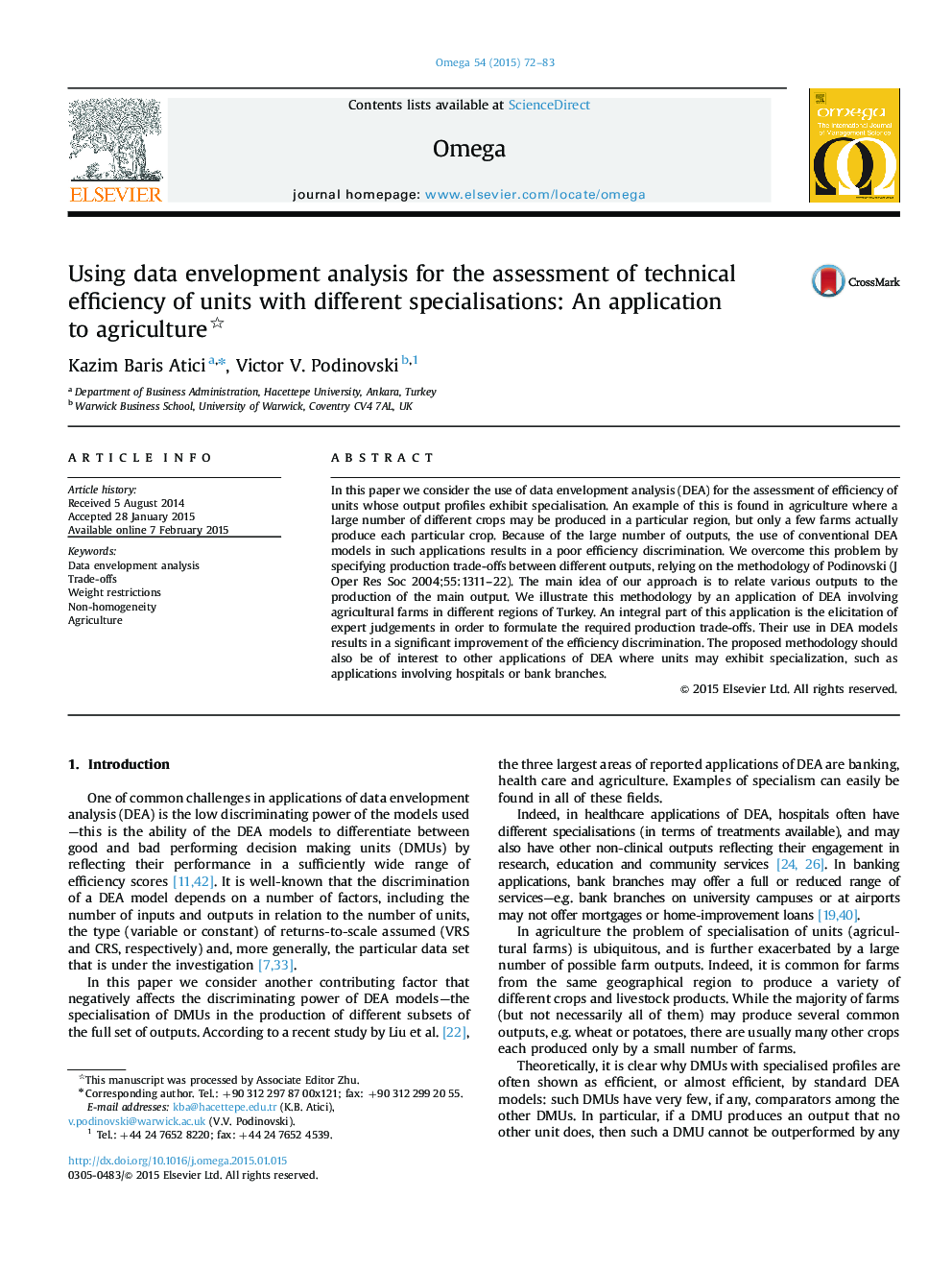| Article ID | Journal | Published Year | Pages | File Type |
|---|---|---|---|---|
| 1032540 | Omega | 2015 | 12 Pages |
•Efficiency assessment of units with specialised production profiles is considered.•The use of production trade-off in DEA is demonstrated by an application to agriculture.•Expert judgements are used to assess production trade-offs.•The trade-off approach yields a significant improvement to the efficiency discrimination.
In this paper we consider the use of data envelopment analysis (DEA) for the assessment of efficiency of units whose output profiles exhibit specialisation. An example of this is found in agriculture where a large number of different crops may be produced in a particular region, but only a few farms actually produce each particular crop. Because of the large number of outputs, the use of conventional DEA models in such applications results in a poor efficiency discrimination. We overcome this problem by specifying production trade-offs between different outputs, relying on the methodology of Podinovski (J Oper Res Soc 2004;55:1311–22). The main idea of our approach is to relate various outputs to the production of the main output. We illustrate this methodology by an application of DEA involving agricultural farms in different regions of Turkey. An integral part of this application is the elicitation of expert judgements in order to formulate the required production trade-offs. Their use in DEA models results in a significant improvement of the efficiency discrimination. The proposed methodology should also be of interest to other applications of DEA where units may exhibit specialization, such as applications involving hospitals or bank branches.
